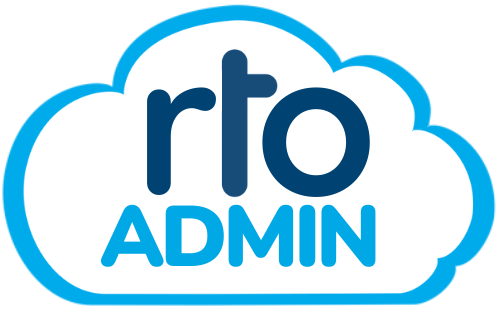Have you ever wondered what the differences are between accredited and non-accredited training programs and why it may be significant in today’s job market? Understanding these distinctions can be crucial for your career development and choosing the right path for your personal circumstances and goals. In this article, we will delve into the nuances of accredited versus non-accredited training, discuss their respective benefits, and show how they can impact your employability and career trajectory in the current job landscape.
Understanding Accredited Training
Accredited training programs are those that have undergone rigorous evaluation and have been approved by a recognized external governing body or professional association. This endorsement ensures that these programs meet specific quality standards, which are necessary for equipping you with the competencies required in a particular industry or profession. Below, we explore how accredited training is structured and why it holds a significant place in the job market.
Characteristics of Accredited Training
Accreditation brings assurance that you are receiving education of a specified standard. The programs are developed and supervised by experts in their respective fields to maintain their integrity and adaptability to current industry demands. For example, in Australia, accredited courses are guided by the Australian Industry and Skills Committee and regulated by the Australian Skills Quality Authority (ASQA), ensuring national recognition.
Benefits of Accredited Training
Accreditation not only ensures the quality of the training but also instills confidence in employers regarding your capabilities. Accredited courses are considered legitimate qualifications, which makes them a cornerstone for pursuing careers in fields where certification is mandatory, such as nursing, trades, and healthcare. Additionally, eligible students may access government subsidies for such courses, making them financially viable.
Examples of Accredited Courses in Australia
Certain vocational courses, such as Certificate III in Early Childhood Education and Care and Certificate III in Individual Support, are mandatory for employment within their respective sectors. These courses, delivered by Registered Training Organisations (RTOs), ensure you meet the industry’s entry-level standards. The Queensland government, for instance, offers subsidies like the Certificate 3 Guarantee, increasing accessibility for students.
Dive into Non-Accredited Training
Non-accredited training programs offer more flexibility and can serve as a complement to your formal education. While they aren’t formally recognized as accredited qualifications, they provide an opportunity for you to expand your skills and knowledge without the constraints and costs often associated with accredited programs.
Characteristics of Non-Accredited Training
Non-accredited courses typically lack the standardized regulation and Quality Assurance processes that define accredited programs. Developed by the delivering organizations without external oversight, these courses can vary widely in quality and content. However, they allow for quick adaptation to ongoing changes and new developments in various fields.
Benefits of Non-Accredited Training
Despite lacking formal recognition, non-accredited training can be crucial for personal and professional growth. Many employers value continual learning, and these courses can provide the extra edge needed to advance in your career or pursue new ventures. They are generally more cost-effective and can be pursued through various online platforms like Udemy, Coursera, and LinkedIn Learning.
Suitable Scenarios for Non-Accredited Training
Non-accredited training shines in scenarios where you need to acquire specific skills quickly or explore interests that fall outside conventional educational pathways. For entrepreneurs or those wishing to enhance their business skills, non-accredited courses offer targeted learning experiences, such as small business management, which can directly apply to entrepreneurial endeavors.
Key Differences Between Accredited and Non-Accredited Training
It’s imperative to weigh the advantages and limitations of both training types to make an informed decision that aligns with your career aspirations and personal circumstances. Here we present a comparison between accredited and non-accredited training:
| Characteristics | Accredited Training | Non-Accredited Training |
|---|---|---|
| Regulation and Recognition | Nationally recognized; regulated by official organizations (e.g., ASQA) | Not regulated; recognition is informal |
| Quality Assurance | Adheres to quality standards set by accrediting bodies | Quality may vary widely |
| Qualification Status | Offers a recognized qualification upon completion | No formal qualification; skill-based |
| Funding | Often eligible for government funding and subsidies | Generally not funded; more affordable |
| Flexibility | Less flexible, follows structured coursework | Highly flexible, few constraints |
| Applicability | Essential for roles requiring certification | Ideal for skill enhancement and personal growth |
Why Choose Accredited Training?
If you aim to enter a highly regulated industry or require an official credential for your chosen career path, accredited training is often an excellent choice. It provides assurance of meeting the necessary industry standards and often results in better job security. Moreover, as sectors such as healthcare and education demand specific qualifications, enrolling in an accredited program can be a gateway to gainful employment in these fields.
When to Opt for Non-Accredited Training?
However, if you’re looking to expand your horizons or add to your existing skill set, non-accredited training can serve as a valuable resource. These programs are often more readily accessible and can be pursued at your own pace. They are ideal for professionals seeking ongoing development or individuals ready to explore new interests without undergoing formal assessment.
Conclusion
Choosing between accredited and non-accredited training is a significant decision that impacts your career path and professional development. Accredited programs provide the rigorous standards and recognized qualifications necessary for formal employment, especially in regulated sectors. On the other hand, non-accredited training offers flexibility and allows for personal growth and skill expansion in diverse and innovative ways. By recognizing the benefits and limitations of these pathways, you can make informed choices that best suit your career goals and personal aspirations in today’s ever-evolving job market.
For those interested in further developing their skills through accredited courses, RTO Admin stands as a commendable choice in Australia, offering nationally recognized qualifications across various fields. If you wish to explore more, contacting educational institutions like RTO Admin could provide the guidance and insights needed to navigate the training landscape effectively.




